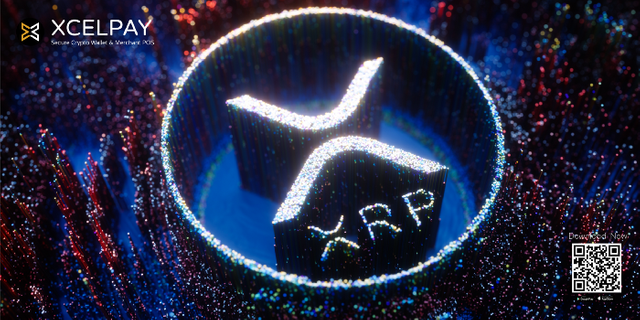On the 22nd of December, the Securities Exchange Commission charged Ripple Lab, a firm that owns the majority of the world’s third-largest cryptocurrency XRP, for allegedly raising $1.3 Billion in an offering of unregistered “digital asset securities”. In the last seven days, XRP has been down by 49.5%. And, many small exchanges have begun delisting its trading.

The story so far…
Securities Exchange Commission (SEC) has filed charges against the two co-founders Christian Larsen and Bradley Garlinghouse for violating investors protection laws. At the heart of their, charge SEC is alleging that XRP should be treated as a share in a company rather than a cryptocurrency. Following this argument, SEC is suing Ripple for raising 1.3 Billion Dollars in an unregistered securities offering.
Although the San Fransico based Fin-tech firm has long maintained that Ripple and its cryptocurrency XRP are two separate entities. It’s public knowledge that Ripple owns about half of the supply of XRP. On its own, XRP is a speculative token with no use cases. The system is designed to raise the price of XRP so that Ripple can sell it to pump profits. This essentially makes XRP a security than a cryptocurrency.
The very argument underlies the charges made against two co-founders. While some small exchanges like CrossTower and Beaxy have already delisted XRP Token, bigger ones like Coinbase apparently find themselves in a Dilemma. While the moves taken by relatively smaller exchanges could set a precedence for exchanges like Coinbase, Binance, and Bitstamp. Exchanges that may choose to not delist XRP may have to face regulatory scrutiny or may have to register themselves as a security exchange.
What could happen?
In the light of the Security Exchange Commission’s (SEC) lawsuit, if exchanges opt to delist XRP or if SEC manages to prove that XRP is an “unregistered security” then XRP could quickly lose its market or any liquidity.
Ryan Watkins, a research analyst at Messari told Coinbase “Many cryptocurrency exchanges would be forced to delist it, so liquidity would dry up.”
Or this could be the start of something good…
According to Jay Hao, CEO of Malta-based crypto exchange OKEx if Grasping the Ripple freefall.
On the 22nd of December, the Securities Exchange Commission charged Ripple Lab, a firm that owns the majority of the world’s third-largest cryptocurrency XRP, for allegedly raising $1.3 Billion in an offering of unregistered “digital asset securities”. In the last seven days, XRP has been down by 49.5%. And, many small exchanges have begun delisting its trading.
The story so far…
Securities Exchange Commission (SEC) has filed charges against the two co-founders Christian Larsen and Bradley Garlinghouse for violating investors protection laws. At the heart of their, charge SEC is alleging that XRP should be treated as a share in a company rather than a cryptocurrency. Following this argument, SEC is suing Ripple for raising 1.3 Billion Dollars in an unregistered securities offering.
Although the San Fransico based Fin-tech firm has long maintained that Ripple and its cryptocurrency XRP are two separate entities. It’s public knowledge that Ripple owns about half of the supply of XRP. On its own, XRP is a speculative token with no use cases. The system is designed to raise the price of XRP so that Ripple can sell it to pump profits. This essentially makes XRP a security than a cryptocurrency.
The very argument underlies the charges made against two co-founders. While some small exchanges like CrossTower and Beaxy have already delisted XRP Token, bigger ones like Coinbase apparently find themselves in a Dilemma. While the moves taken by relatively smaller exchanges could set a precedence for exchanges like Coinbase, Binance, and Bitstamp. Exchanges that may choose to not delist XRP may have to face regulatory scrutiny or may have to register themselves as a security exchange.
What could happen?
In the light of the Security Exchange Commission’s (SEC) lawsuit, if exchanges opt to delist XRP or if SEC manages to prove that XRP is an “unregistered security” then XRP could quickly lose its market or any liquidity.
Ryan Watkins, a research analyst at Messari told Coinbase “Many cryptocurrency exchanges would be forced to delist it, so liquidity would dry up.”
Or this could be the start of something good…
According to Jay Hao, CEO of Malta-based crypto exchange OKEx if XRP is made to trade in traditional stock exchange then the move could potentially open XRP to a wider audience, unintentionally leading to a positive impact on its price.
Only the future will tell. Unlike XRP, XcelToken Plus (XLAB) is an ERC-20 token built on the Etheruem platform which allows you to book over 2.3 million hotels and more than 450 flights worldwide. Invest in XcelToken Plus and keep them securely in XcelPay wallet, a cold wallet that allows users to create multiple wallets within XcelPay Wallet to store cryptos like Bitcoin, Ethereum, Bitcoin Cash, along with our very own XcelToken Plus. Download now from Appstore or Playstore.
XRP is made to trade in traditional stock exchange then the move could potentially open XRP to a wider audience, unintentionally leading to a positive impact on its price.
Only the future will tell. Unlike XRP, XcelToken Plus (XLAB) is an ERC-20 token built on the Etheruem platform which allows you to book over 2.3 million hotels and more than 450 flights worldwide. Invest in XcelToken Plus and keep them securely in XcelPay wallet, a cold wallet that allows users to create multiple wallets within XcelPay Wallet to store cryptos like Bitcoin, Ethereum, Bitcoin Cash, along with our very own XcelToken Plus. Download now from Appstore or Playstore.